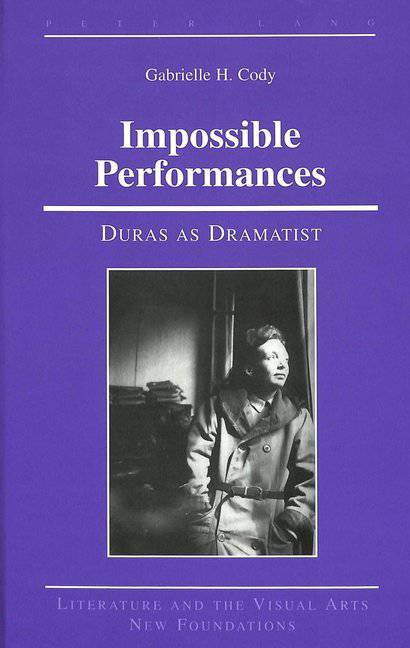
- Afhalen na 1 uur in een winkel met voorraad
- Gratis thuislevering in België vanaf € 30
- Ruim aanbod met 7 miljoen producten
- Afhalen na 1 uur in een winkel met voorraad
- Gratis thuislevering in België vanaf € 30
- Ruim aanbod met 7 miljoen producten
Zoeken
Omschrijving
Impossible Performances: Duras as Dramatist argues that Marguerite Duras is one of the most important figures on the landscape of twentieth-century theater. Like Artaud and Beckett, she is exemplary of the most radical inquiry into the limits of performance. Duras used theater against itself and dramatized the failure of mimetic realism to represent the post-colonial, post-atomic moment. Unlike Artaud's and Beckett's, Duras's metaphysics of performance were motivated by a desire to make audible the subjectivities of femininity, to unstage the representational structures that have (re)produced the docile female body of western discourse. Duras's drama consistently features female protagonists who exist in a relationship of struggle with the representational frame and who speak back to the viewing authorities of a masculine symbolic. In this sense, her performance texts and mental dramas can be said to epitomize the move away from the problematics of modernist revolt to one of the most salient rhetorical concerns of post-modern feminism: the impossibility of representation.
Specificaties
Betrokkenen
- Auteur(s):
- Uitgeverij:
Inhoud
- Aantal bladzijden:
- 176
- Taal:
- Engels
- Reeks:
- Reeksnummer:
- nr. 14
Eigenschappen
- Productcode (EAN):
- 9780820444857
- Verschijningsdatum:
- 22/05/2000
- Uitvoering:
- Hardcover
- Formaat:
- Genaaid
- Afmetingen:
- 160 mm x 230 mm
- Gewicht:
- 359 g

Alleen bij Standaard Boekhandel
+ 137 punten op je klantenkaart van Standaard Boekhandel
Beoordelingen
We publiceren alleen reviews die voldoen aan de voorwaarden voor reviews. Bekijk onze voorwaarden voor reviews.











